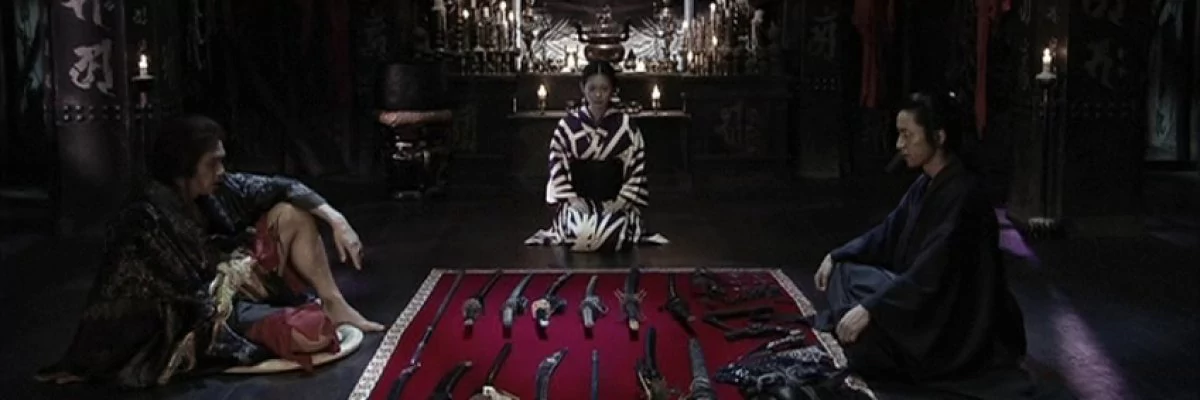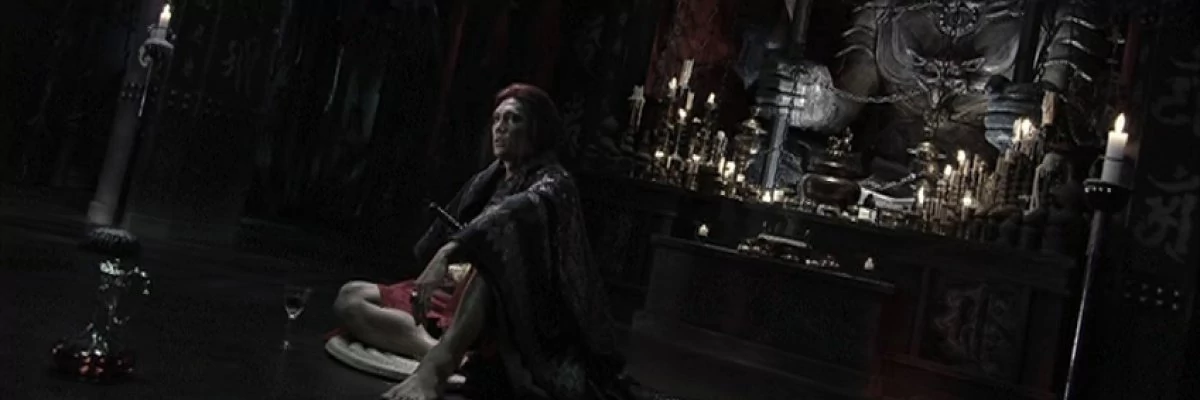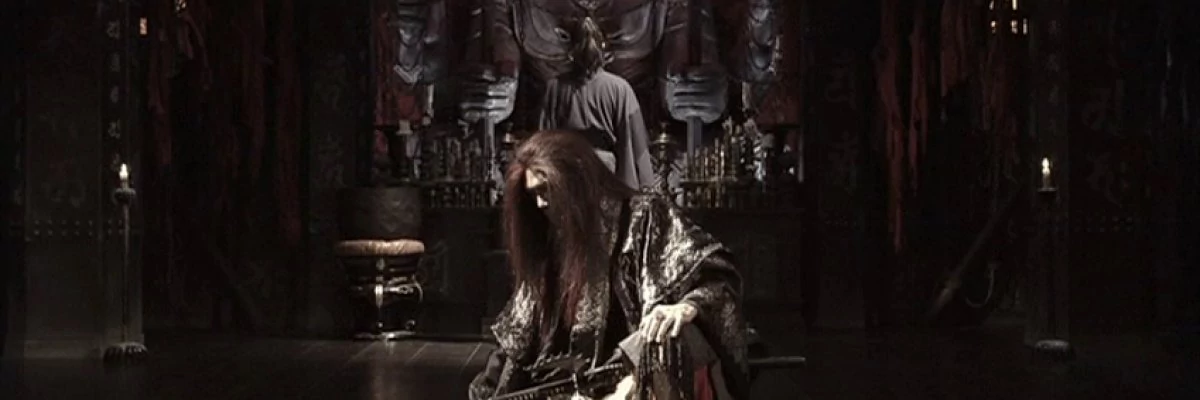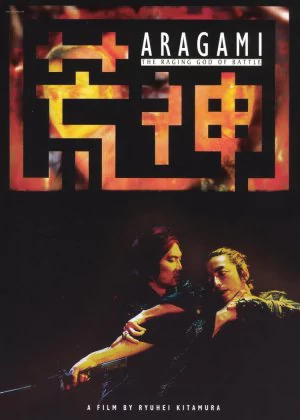Aragami
Some films are planned for years and take even longer to complete, others are made in a week after a night of binge drinking. Ryuhei Kitamura's Aragami was meant to be a little diversion to keep him occupied in between bigger projects, but he was riding such highs back then that he took it as another opportunity to challenge himself full on. I had fond memories of the first time I watched the film but was a little unsure of how it would hold up after all this time, remembering the many restrictions Kitamura had to deal with. It turns out my worries were for naught.

Aragami is half of the Duel Project, a challenge launched by producer Shinya Kawai for Kitamura and Tsutsumi after a good night of drinking. Reportedly, the two finished their anthology assignments early, after which they were given a week, a single location, and two actors to shoot a full-length feature. And may the best director win! Yukihiko Tsutsumi went on to make 2LDK (a very good film in its own right), while Kitamura ended up with Aragami. It's difficult to say which director ended up winning the challenge, for me, it's clear that the true winner here is the audience.
Tsutsumi's 2LDK was a pretty smart film, in the sense that it was tailored to deal with the various restrictions imposed on it from the get-go. Kitamura took the completely opposite approach, aiming to make a bonafide action film, a seemingly impossible mission considering the limited cast and the single location. How to stretch a battle between two characters for 80 minutes straight, that's the extra challenge Kitamura added for himself. It's no real surprise he ended up going with a style over substance approach, with a lot of attention going to the styling of the film and characters.
The plot is extremely simple, but the build-up is pretty strong regardless. Two samurai reach a remote temple on a mountain. They fled from a nearby battlefield, heavily wounded, beaten down, and looking for shelter for the night. Not much later, one of the samurai wakes up and finds himself alone in the temple with the keeper. An odd man who isn't too keen on telling what happened to the samurai's partner. In the conversation that follows, it slowly becomes clear that the keeper isn't some random regular Joe, but a mythical figure looking for a fight.

Not only is the film set in a single location, but that location also needed to function as an action set piece. Needless to say, a lot of responsibility rested on the cinematography to make everything work. It's a good thing then cinematography is one of Kitamura's primary strengths. While an HD clean-up would definitely be appreciated, the film still looks very polished. The use of color is meticulous, the camera work is dynamic and the editing snappy. The characters also come off pretty badass and the fight sequences look great, despite the obvious limitations. Kitamura delivers.
The soundtrack is decent, but not at all on the same level. That's not a big surprise, considering his other films have also suffered from similar issues. It's nice to see Kitamura go for a more electronic-inspired score, but the timing (and reduced volume) stand in the way of a meaningful impact. The music tends to disappear in the background and the way it is incorporated feels a little sloppy. I know Kitamura is a big fan of Hollywood cinema, in this case, he probably should've been looking at Europe for inspiration.
Action films rarely depend on great acting, but when you have two characters locked up for 80 minutes in a single room, you better make sure the cast knows how to deliver a performance. In Takao Osawa and Masayo Kato, Kitamura found two actors who can bring life to their characters, while still holding their own in some pose-heavy show fighting. There's also a short (but very memorable) cameo by Tak Sakaguchi, which adds some welcome tongue-in-cheek fun. There are no award-winning performances here, but I don't think anyone was gunning for that.

It may be a pretty short film, but with no actual action scenes in the first half, Aragami does tend to linger a little. Don't expect anything high octane or intense, because you will be setting yourself up for disappointment. Instead, Kitamura delivers a meticulous build-up that grows increasingly tense. While the finale is considerably more action-heavy, the film remains rather sparse when it comes to actual combat, even if those moments are appropriately exhilarating and flashy. It's not the most convenient setup and it will leave some people wanting, but it's also the reason why this film still stands out.
Aragami may have started as a filler project, and it's certainly not Kitamura's most accomplished work, but it's a neat and unique little film that stands well on its own and hasn't lost any of its original charm. With the help of a perfect build-up, some solid performances, and polished cinematography, Kitamura delivers a fun and thrilling genre exercise that entertains from start to finish. It's even more impressive when taking into account all the limitations imposed on the project, but it doesn't need it as an excuse to justify itself. Aragami is a great film in its own right and a worthy contender for 2LDK.
